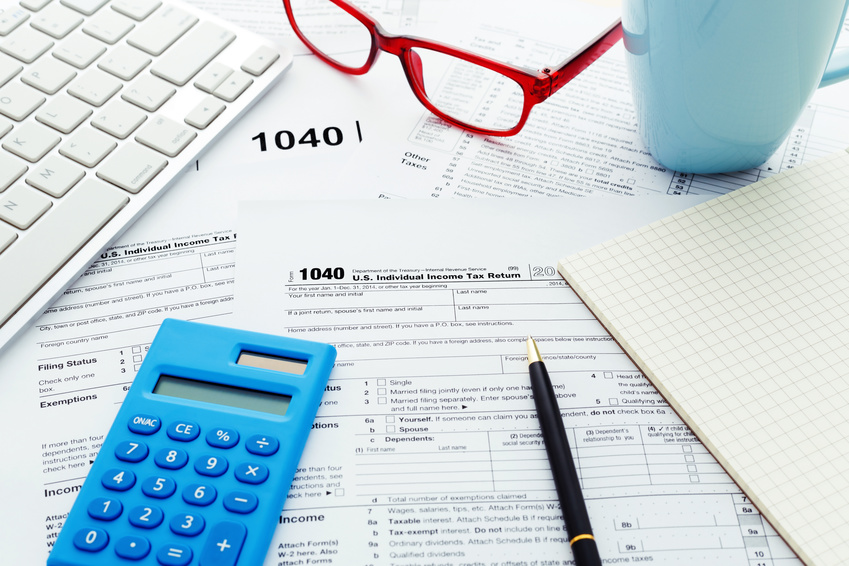Benjamin Franklin pointed out that “death and taxes” are the only sure things in life. That adage holds as true today as it did in 1789. While both are unavoidable, there are things that you can do to reduce your tax liability and make the ongoing process run more smoothly. By being well-organized and knocking down taxable income, you can start making next year’s taxes easier on the stress levels and bank account.
Taxable Income Reductions
Financial advisors and tax attorneys almost always push clients to create and contribute to retirement funds. That’s because this can be one of the gems to reducing your taxable income. IRA payments are considered a “pre-tax” contribution. That means that for every dollar you put into these retirement accounts, that’s a dollar you are not required to pay taxes on this year. Keep in mind, IRAs are really a tax-deferment plan and the government will be looking for that money in your twilight years. Like Ben Franklin said, taxes are certain. At least you’re softening the blow now and building financial security for the future.
The Sustainability of Spending Money
The green energy movement has opened up numerous doors for people to save money on taxes. Replacing antiquated heating systems, drafty windows and installing solar energy panels leads to significant tax rebates. These upgrades also improve your quality of life and increase property values. Taking these positive steps also gives you a wonderful feeling about doing your part for the environment. By spending money on energy efficiency, you’ll enjoy a better tax situation.
Plan Ahead
The thought of making charitable donations often hits you right in the middle of the gift-giving holidays. In many cases, that means having to stretch budgets and resources to effectively do both. After the season passes, many people look back wishing they could have given more. By practicing monthly or quarterly financial planning, you can allot resources in advance and feel good about the happiness spread through gifts and donations. Many of those charitable contributions are also excellent tax deductions. They’re the gift that keeps on giving.
It’s important to treat your personal finances like a business. And like any company, there are strategic investments to consider. You can diversify your portfolio by putting money into things like municipal bonds that are issued to fund projects such as airports and schools. These investments are considered tax exempt from federal and, usually, state taxes. Tax planning means making key decisions about your financial health in a timely fashion, not after the fact.
Brush up on previous years’ tax filings and use those records as an indicator for future decisions. Don’t hesitate to meet with your financial advisor or tax attorney. Get a clear understanding of the deductions you are taking full advantage of and those that could see improvement. Discuss potential tax credits and changes to the tax code. Long-term planning will undoubtedly make the process much easier from year to year.
Check the Box for Stress Deductions
One of the worst and most common things people do in terms of tax preparation is procrastinate. That personal policy actually doubles your stress. Not dealing with tax information leaves that little voice in the back of your mind that something remains unfinished. When crunch time arrives, you’re faced with a Herculean organizational task. Investing small amounts of time year-round will make things run much more smoothly and quiet that inner voice.
- Have A System: Create a system that works for you and streamline it from year to year. After all, taxes are forever. This doesn’t mean using and old shoe box full of crumpled receipts. There are plenty of inexpensive tax software products on the market. Even an Excel spreadsheet can provide basic expense tracking. Being organized is half the battle.
- Keep Receipts: You won’t save any extra money by having all of your receipts. On the other hand, if you get randomly audited, the IRS may reject certain expenditures and deductions without them. The IRS could also start a costly tax audit as well. A notebook and glue stick are sufficient to keep proof of payments organized. Many small business owners glue them to a page and make an entry about what that money went toward. In the event of a computer crash, this gives you a hard copy backup.
Benjamin Franklin and Founding Fathers fought the American Revolution to ensure fair and equitable taxation. You are assured a voice in how the government taxes your income and assets. Utilizing good organizational practices and financial planning can make your ledger sheet a little more equitable and easier to manage.
It’s important to work with an experienced attorney on tax-related matters. At the France Law Firm, we are here to help.






















